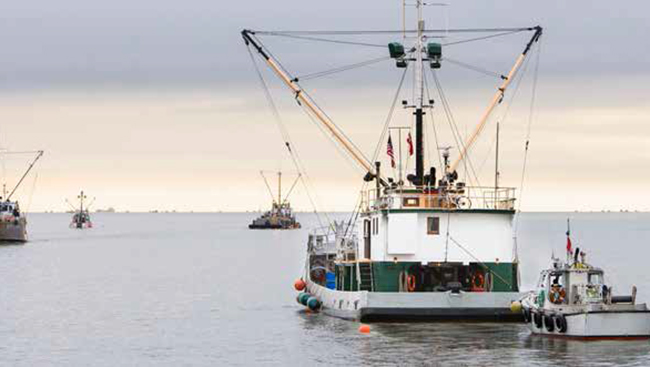Sustainable Fisheries Resolution Recommendations
Key priorities for adoption by the United Nations General Assembly’s 71st session

Regional fisheries management organizations (RFMOs) continue to set catch limits with insufficient precaution and allow fishing of stocks to dangerously low levels.
© Scott Dickerson/Getty ImagesOverview
The Pew Charitable Trusts urges United Nations Member States to take action on this year’s General Assembly resolution on sustainable fisheries in order to implement effective conservation and management measures worldwide. The recommendations of this year’s resumed United Nations Fish Stocks Agreement review conference have outlined the steps needed to ensure the long-term sustainability and health of fish stocks and other marine species. This includes measures such as ecosystem-based management, decision-making based on the precautionary principle, and marine protected areas (MPAs). In particular, this year’s resolution on sustainable fisheries should include text that calls on States and regional fisheries management organizations (RFMOs) to:
- Implement the recommendations agreed upon in the resumed review conference rapidly, to improve the performance of States and RFMOs in meeting their obligations to manage fisheries sustainably.
- Prohibit the taking of sharks unless precautionary, science-based management plans are in place.
- Adopt precautionary catch limits immediately, including target and limit reference points for all tuna species fished in their convention areas, and use management strategy evaluation to develop robust harvest control rules to ensure the long-term sustainability and profitability of fisheries.
- Limit the deployment of fish aggregating devices (FADs) under their jurisdiction and increase observer coverage on longline fishing vessels through human or electronic means.
- Increase efforts to eliminate illegal, unreported, and unregulated (IUU) fishing, particularly by ratifying the Port State Measures Agreement (PSMA), mandating the use of International Maritime Organization (IMO) numbers, positively identifying and tracking vessels, and effectively regulating authorized trans-shipment at sea through specific control mechanisms.
- Establish and increase large, fully protected marine reserves and MPAs, including for use as a fisheries management tool, with a goal of protecting at least 30 per cent of the world’s oceans.
- Recommit to implementing the resolutions regarding deep-sea fisheries and improving protections for deep-sea ecosystems.







